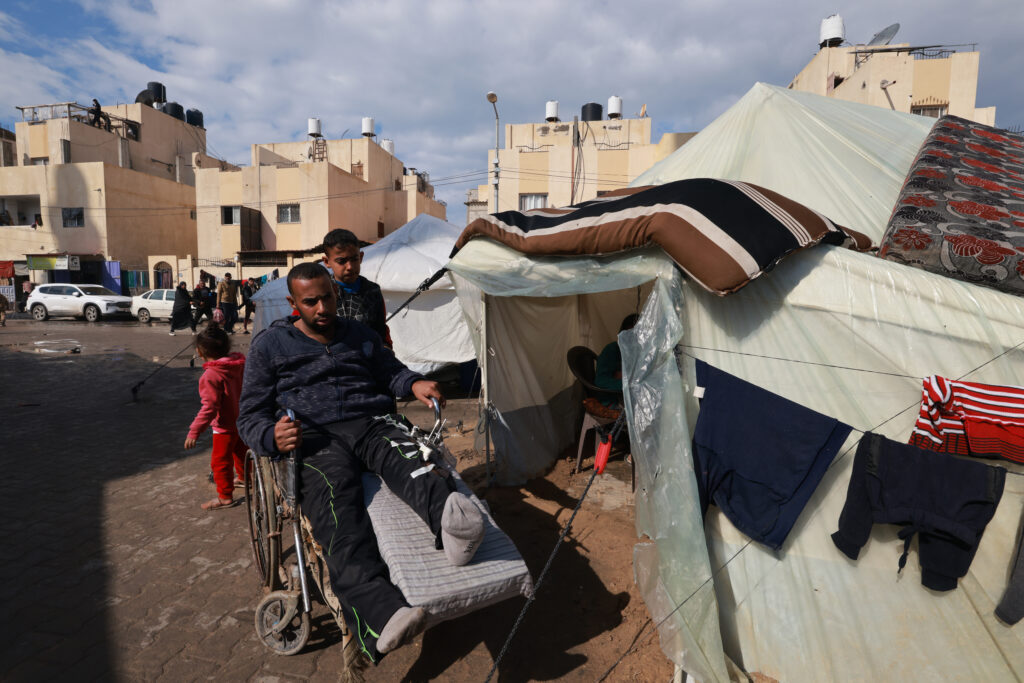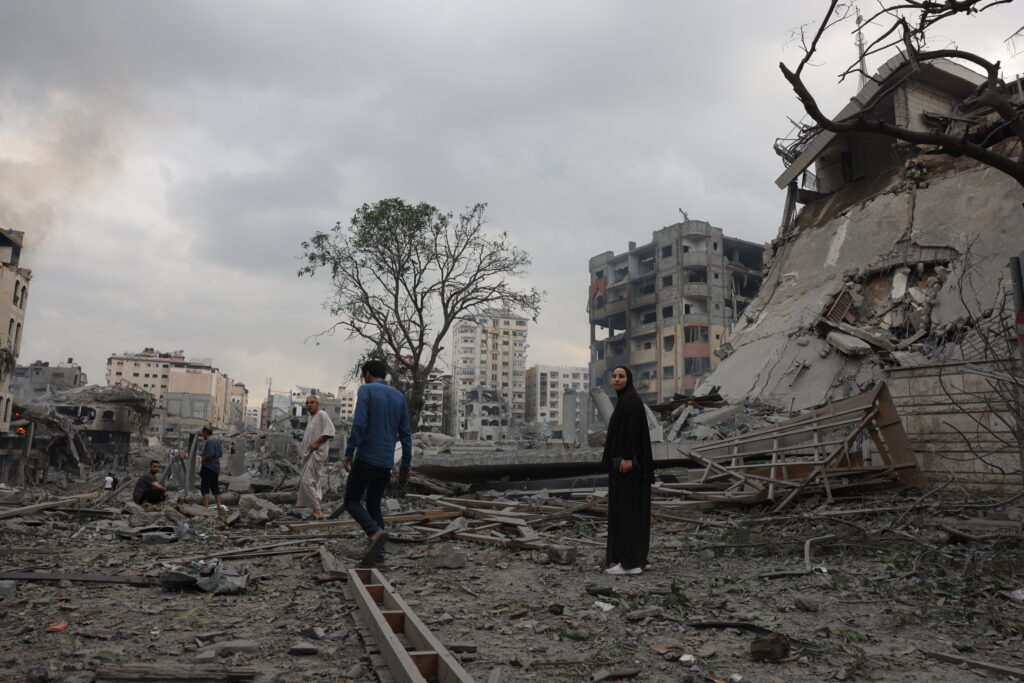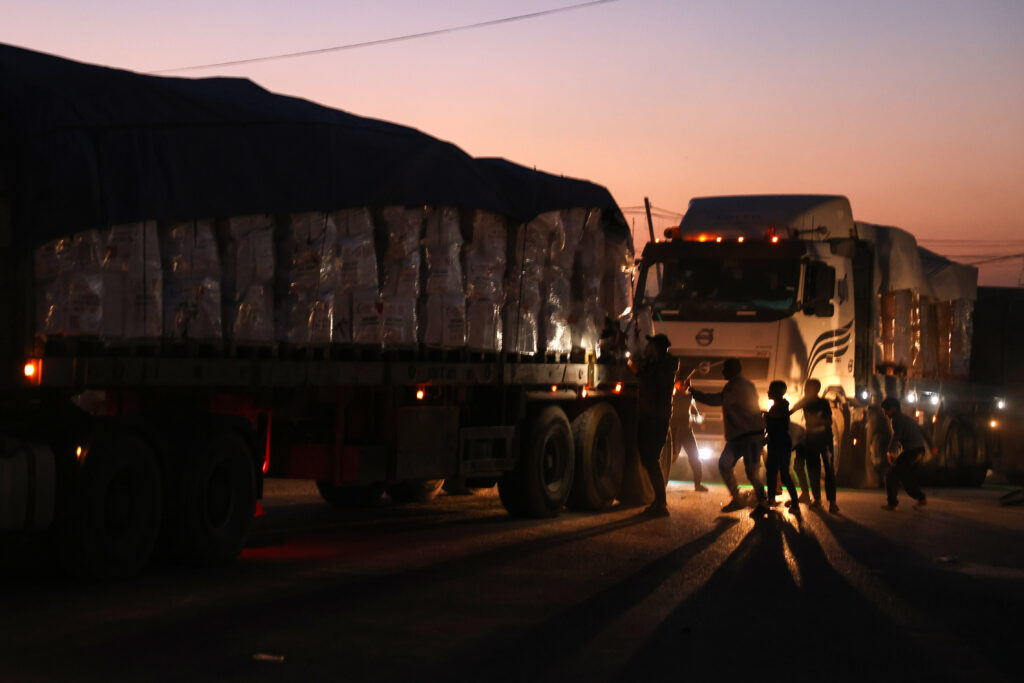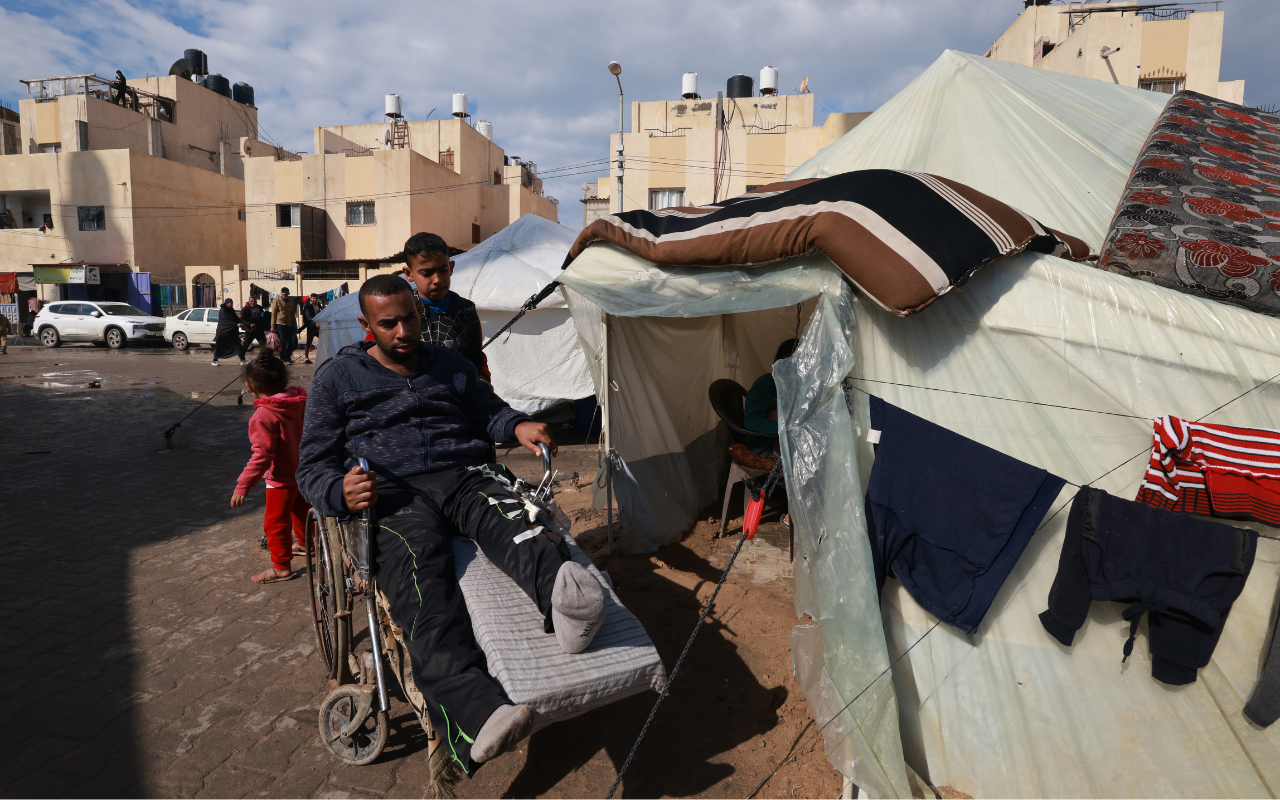There are fears for the lives of thousands of displaced civilians in southern Gaza, who were sheltering in the grounds of a major hospital in Khan Yunis, with Médecins Sans Frontières now declaring “nowhere in Gaza is safe”.
An evacuation order for Nasser hospital, issued by the Israeli military, has forced patients and displaced civilians to leave and fend for themselves in the beleaguered town of Khan Yunis, which continues to come under heavy bombardment.
It has been reported that Israel cut electricity and oxygen supplies to the hospital last week, despite medical personnel staying inside to treat the wounded.
This is especially concerning since patients are presenting with severe, complex injuries.
“Teams are seeing more severe burn injuries than we have ever seen in a conflict globally,” Médecins Sans Frontières (MSF) said in a statement.
“Most burns patients that our teams are receiving have 30 to 50 per cent of their body affected. At 50 per cent, most people die.”

Medical personnel later had to flee the hospital compound due to constant shelling.
“People have been forced into an impossible situation,” Lisa Macheiner said, the MSF project coordinator in Gaza.
“[Either they] stay at Nasser hospital against the Israeli military’s orders and become a potential target or [they] exit the compound into an apocalyptic landscape where bombings and evacuation orders are part of daily life.
“Hospitals should be considered as safe places and shouldn’t even be evacuated in the first place.”
Since 7 October 2023, MSF said its medical teams and patients have had to evacuate nine different health care facilities in the Gaza Strip, after either being issued with evacuation orders or coming under fire from the Israeli military.

The human toll
The conflict began on 7 October 2023, when Hamas militants attacked southern Israel, killing 1200 people in Israel and taking 250 people as hostages. About 112 hostages have been freed and 29 have been killed, France 24 reported. It also reported that 101 hostages are still alive.
Gaza’s Health Ministry said 29 092 Palestinians have been killed, reporting that two-thirds of them are women and children. More than 69 000 have been wounded since the conflict began, it said.
Gaza has been labelled “the most dangerous place in the world to be a child” by the United Nations Children’s Fund (UNICEF) global spokesperson, James Elder.
“In my twenty years with UNICEF, traveling from one humanitarian crisis to the next, from famines to floods and war zones to refugee camps, I’ve simply never seen such devastation and despair as is happening in Gaza,” Mr Elder said.
Palestinian representatives have asked the International Court of Justice to consider the word “apartheid” to describe the unfolding situation in Gaza. It has also asked the court to declare Israel’s occupation of lands sought for a Palestinian state as illegal. Israel responded by describing the questions to the court as “prejudiced”.
“While the request made to the Court seeks to portray it as such, the Israeli–Palestinian conflict is not a cartoon narrative of villain and victim in which there are no Israeli rights and no Palestinian obligations,” Israel authorities said.
“Entertaining such a falsehood can only push the parties further apart rather than help create conditions to bring them closer together.”
The judges are expected to take “months” to issue an opinion.

International response
Health organisations around the world, including the Medical Journal of Australia (MJA), have called for the principle of medical neutrality to be upheld and for a ceasefire.
The MJA’s Editor-in-Chief, Professor Virginia Barbour, said an immediate cessation to hostilities would save lives.
“The growing humanitarian crisis and, in particular, the situation in the health system in Gaza is of grave concern to everyone but especially medical professionals,” Professor Barbour said.
“An immediate cessation of hostilities is essential to spare the lives of civilians and to enable Gaza’s failing health care system to be re-established.”
An Australian petition, started by paediatric registrars, Dr Safiyyah Abbas and Dr Ella Tracey, has received more than 42 000 signatures and calls for Prime Minister Anthony Albanese to demand an immediate ceasefire.
In a statement published when the conflict began, the World Medical Association said it stood firmly for the principles of medical neutrality and mourned the loss of lives in Gaza, particularly the medical personnel caught up in the conflict.
The Australian Medical Association (AMA) has also called on all parties involved in the conflict to respect the principles of medical neutrality during times of armed conflict.
“The AMA recognises the conflict and ensuing humanitarian crisis is causing great distress amongst healthcare workers in Australia and around the world,” the AMA said in a recent statement.
“AMA members wondering how to help and support humanitarian efforts in Gaza may wish to consider donating to organisations such as the International Committee of the Red Cross (ICRC) and [MSF], both of which are actively on the ground providing assistance and relief to those in need.”
On Monday 19 February, Israel said it would “finish the job” in Gaza, warning it would launch a ground offensive in Rafah if the remaining hostages are not released by 10 March.
Subscribe to the free InSight+ weekly newsletter here. It is available to all readers, not just registered medical practitioners.

 more_vert
more_vert